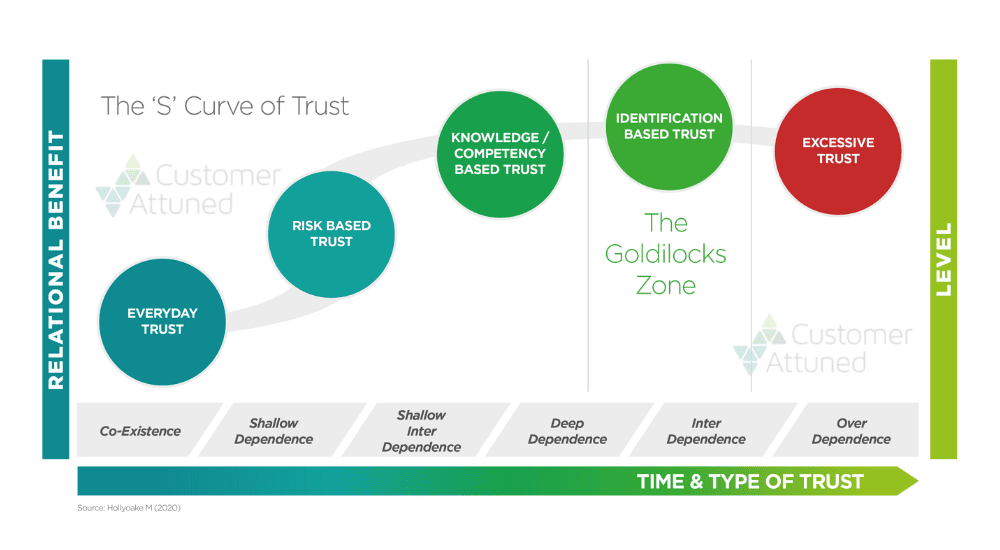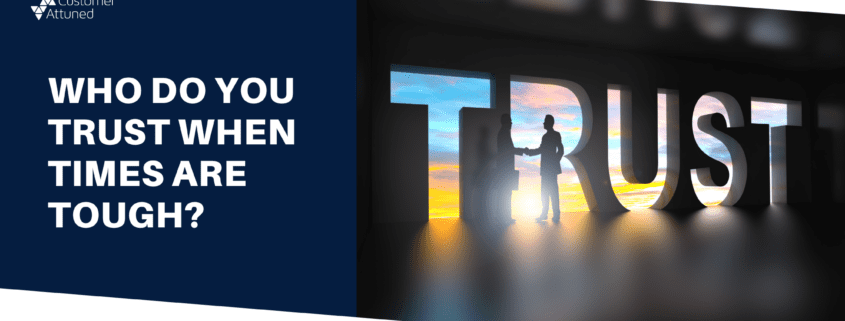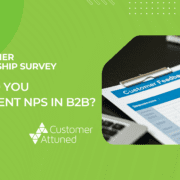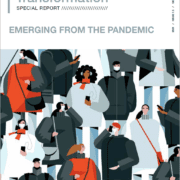Who do you trust when times are tough?
In this blog, Dr Mark Hollyoake looks at issues of who you can trust when times are tough, using examples from the retail sector. Knowing where your B2B relationships level trust sits, could be all the difference you need to meet the challenges (known and unknown) that the next two years will offer.
We all know that relationships thrive when the going is good, but when times get tough and businesses have to make bottom line decisions, it’s not surprising to see coercive or opportunistic behaviours creeping into business dealings with negative consequences for all partners.
So who do you trust when times are tough?
We’ve seen some very public spats of coercive behaviour recently as increased supply chain costs start to bite e.g. the absence of Colgate & Heinz beans from Tesco stores signifying a relationship that may need some trust re-building at the leadership levels.
Colgate & Heinz are not alone. Operating in such a dire economic climate for many B2B organisations, the topic of trust may seem as far away as immediate financial relief, but, as my doctoral research shows, it’s at these times when businesses face adversity that some of the biggest benefits can be had from strong trust based relationships.
What to do when B2B Trust Breaks Down
In times of crisis, it’s knowing how those situations are managed that makes the difference. Relationships that are committed to building trust jointly focus on the challenge in hand for a mutually beneficial solution. This means that both partners enter into a trust-structured agreement which enables their combined efforts to effect a positive outcome. In everyday terms this means joint working which confers an advantage on competitors by innovating and enacting ways to tackle the challenges thrown up by the current climate head on. Or, at very least to implement ways to mitigate its impact.
Working within a trust-based agreement empower each side’s leadership team, and forges episodes often referred to as ‘war stories’, which pass into the annals of relationship history, increasing trust and relational interdependence, and building identity. In the annuals of time, organisations like Heinz will use their spat with Tesco’s to build ‘a relational war story.
For those of you like myself who avidly follow; Ged Futter from The Retail Mind on LinkedIn. Proving that a tough climate is an opportunity to show your trust credentials is highlighted in Ged’s article in The Grocer on how Nestle had approached this issue.
Shreddies has bucked the trend for ‘shrinkflation’ with a packaging switch up in Tesco. The Nestlé brand has moved from 460g and 720g packs into 630g and 1.1kg packs in the retailer. The previous packs were sold at £2.50 and £3 respectively, while the new packs are being sold at £3 and £3.50. The 460g packs are already sold in other retailers, but the 1.1kg pack is only available in Tesco, (Assosia data reveals [10 w/e 6 July 2022]. This means the price per 100g of cereal has dropped from 54p to 48p for the smaller packs, and from 42p to 32p for the larger packs in Tesco. Read the article here.
This points to a more collaborative and co-creative approach to addressing the issue – pointing to trust building activities and enhanced mutual benefits. This would definitely, provide war stories that both sides could reflect on in the future.
As commercial leaders wrestle with more and more challenges every day, ask yourself the question: “do I really know how much and who I can trust?” Knowing the level and strength of relational trust will be a good indicator of what you might face

Figure 1 :- The ‘S‘ curve of trust
If you have a relationship predicated on risk-based trust tracking at medium trust strength between the key contacts, the chances of finding a way to a mutually positive outcome is likely to be hard fought. However, a relationship that enjoys deep-interdependence and high trust levels between key contacts is likely to be more principled, creative and collaborative that is able to deliver a mutually positive outcome actually enhancing trust between both sides, as indicated earlier in the Nestle example.
This builds confidence between both sides that challenges can be faced, overcome and solutions developed that positively impact the relationship.
Finding out where your key relationships sit on the ‘S’ curve and the strength of the trust you enjoy is a key and valuable part of our expertise. The upside of doing this will be significant, helping the commercial team in the development of their approach, strategy and tactics, to meet and/or mitigate the challenges ahead.
This could be all the difference you need to meet the challenges (known and unknown) that the next two years will offer.
Learn how B2B Trust impacts relationships
Find out how Embedded Trust could be a factor in your business relationships: Embedded Trust
![]()
Is B2B Trust an issue in your company? Then talk to us – let us help you build Trust into your ways of working.
Follow Dr Mark Hollyoake on Twitter
- Excessive Trust – When Trust Goes Wrong - October 29, 2024
- Identification Based Trust - October 21, 2024
- Introducing Knowledge Based Trust - October 15, 2024




